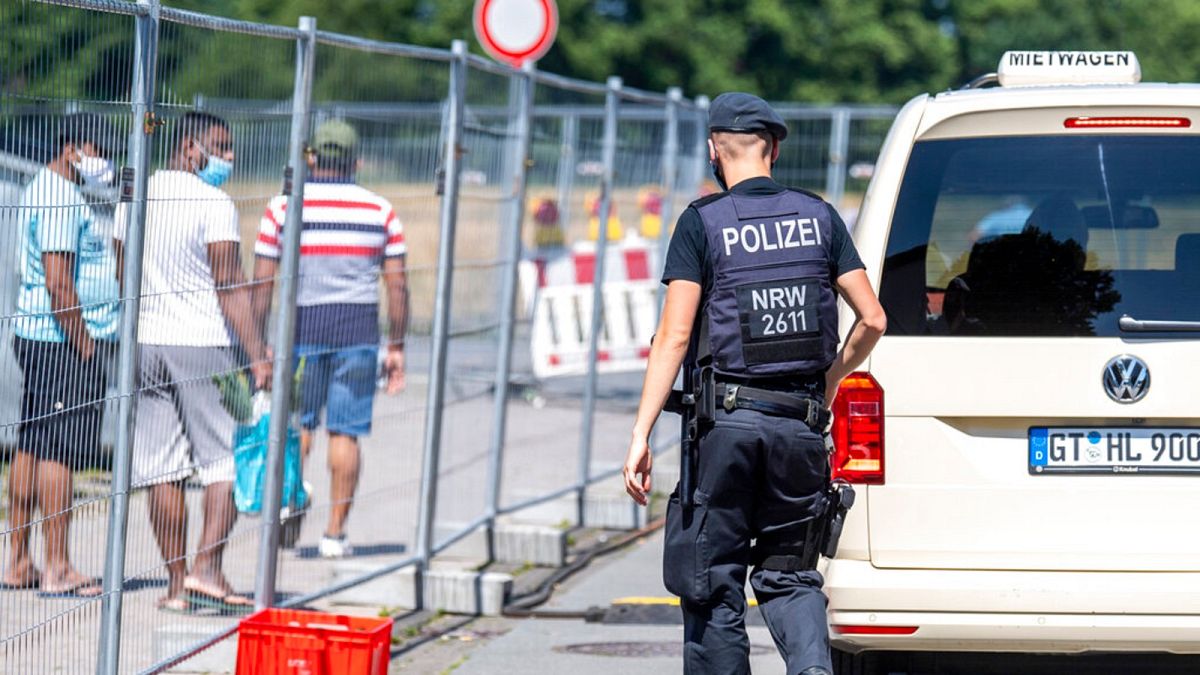The judges ruled that the restrictions imposed in Gütersloh after an outbreak at a slaughterhouse were disproportionate and should be replaced with more targeted measures.
A German court has ended a local lockdown imposed to tackle a coronavirus outbreak at a slaughterhouse, ruling that the restrictions were disproportionate.
The top administrative court in North Rhine-Westphalia state ruled that the lockdown slapped on all of Gütersloh district last month wasn't justified anymore.
It found that the lockdown placed an unfair burden on citizens and could be more targeted, given that the number of confirmed coronavirus cases varied greatly across the area.
The judges agreed with a local company that had argued their businesses were in parts of the county that hadn't recorded many cases and should therefore not be subjected to the restrictions.
The ruling came just as the lockdown in Gütersloh was due to be reassessed by local politicians.
Some in Germany now fear it could pave the way to further legal disputes with authorities if they impose new lockdowns in the face of resurgent coronavirus cases.
More than 1,500 workers at a Tönnies meatpacking plant tested positive for the coronavirus in June. The outbreak has drawn attention to the difficult working and living conditions of Germany's slaughterhouse employees, many of whom come from eastern Europe and are hired through subcontractors.
Tönnies company representatives have unveiled plans to safely reopen the slaughterhouse, but authorities have called them insufficient and are especially eager to ensure that the ventilation systems don’t facilitate the spread of the virus.
The closure is already having knock-on effects on the food chain.
On Monday, over 100 farmers protested around the meatpacking plant because they say they have thousands of pigs that need to be delivered there and that they cannot take care of.












